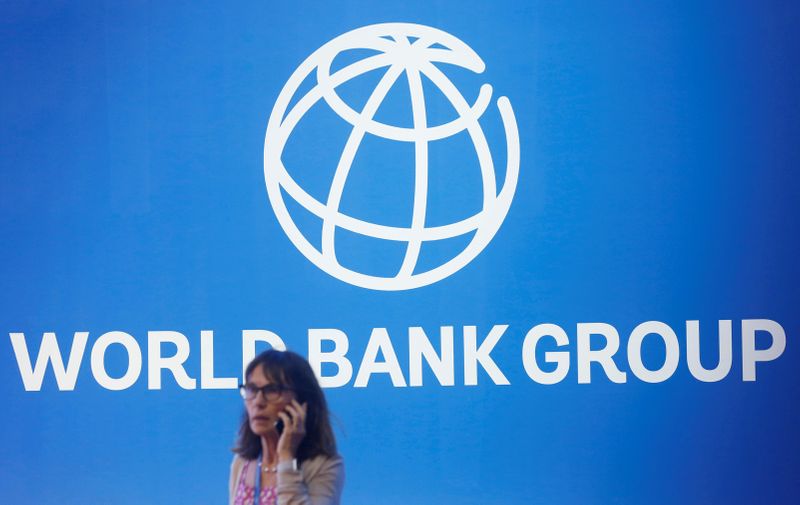By Andrea Shalal
WASHINGTON (Reuters) - The World Bank on Tuesday announced an initial $12 billion in immediate funds to assist countries grappling with the health and economic impacts of the coronavirus virus outbreak that has spread quickly from China to some 80 countries.
World Bank President David Malpass said there were still "many unknowns" about the fast-spreading virus and "much more" aid might be required, but he declined to elaborate.
The announcement underscored escalating concern about the economic and human impact of the virus.
The World Health Organization (WHO) on Tuesday warned of a global shortage of protective equipment to fight the disease as well as price gouging as the death toll from the respiratory illness mounted.
Also on Tuesday, the U.S. Federal Reserve cut interest rates in an emergency move to try to prevent a global recession, and finance officials from the G7 group of rich countries said they were ready to adopt fiscal and monetary measures where appropriate.
Malpass called on countries to coordinate their actions on a regional and international level, saying the speed and breadth of the response would be critical to saving lives.
"We're announcing today an initial package of immediate support that will make available up to $12 billion to respond to country requests for crisis financing of their immediate needs and also to lessen the tragic impacts of the crisis," he said.
"The point is to move fast; speed is needed to save lives," Malpass said during a teleconference with reporters. "There are scenarios where much more resources may be required. We’ll adapt our approach and resources as needed."
The Bank's International Development Association, which helps the world's poorest countries, could also receive additional funds in the second quarter of 2020 if its Pandemic Emergency Financing Facility (PEF) is triggered, which has not occurred yet, Malpass said.
That would not require global health officials to declare the outbreak a pandemic, he added.
Poor countries with weak health systems were the most vulnerable in such outbreaks, he said, but past experience with Ebola and other outbreaks showed that taking the right measures quickly could lessen transmission of the disease and save lives.
He also cautioned countries against taking measures that would further limit trade.
Some countries had already requested aid, Malpass said, but declined to name them.
The World Bank said the $12 billion in fast-track grants, loans and low-interest loans would help developing countries provide better access to health services, strengthen disease surveillance and bolster public health interventions, as well as work with the private sector to reduce the impact on economies.
About $4 billion of the funding will be reprogrammed from other Bank instruments, officials said.
The Bank said its International Finance Corporation (IFC) will work with commercial bank clients to expand trade finance and working capital lines as countries scramble to get needed supplies to contain the virus.

The IFC will also work with corporate clients in strategic sectors such as medical equipment and pharmaceuticals to sustain supply chains and limit downside risks.